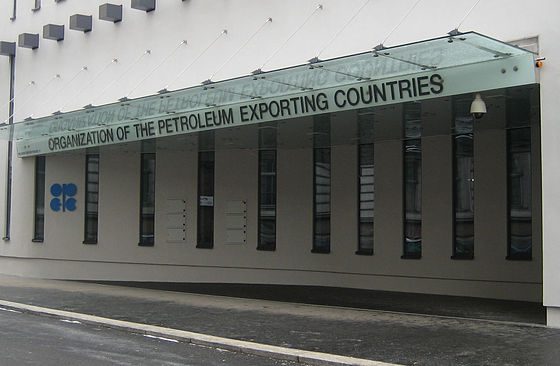The Biden administration continues to rely on hostile regimes to keep oil prices down in the months leading up to pivotal elections.
The Treasury Department announced Monday that it is extending sanctions relief for 10 Russian financial institutions that are involved in the energy sector, with the relief set to expire on November 1 in the absence of any further action. The move reduces the risks that global oil prices spike over the summer and follows several similar decisions involving Iran and OPEC countries, for example, keeping oil prices lower ahead of important elections.
The extension of sanctions relief contrasts with the administration’s earlier rhetoric about using sanctions to “squeeze” and “confront” Russian President Vladimir Putin. The decision to extend relief for another six months also follows a Bank of America projection that oil prices could jump up to $95 per barrel this summer, while some analysts expect national average gas prices to approach or exceed $4 per gallon.
KENNEDY: “The Biden administration would rather let dictators pump their oil than allow America to use our own energy resources.” pic.twitter.com/3tv6Eayhmh
— Daily Caller (@DailyCaller) April 10, 2024
The Treasury Department described the extension of sanctions for the 10 Russian firms as standard practice.
“This is a standard renewal authorizing energy transactions that has occurred every 6 months since the start of the war,” a Treasury Department spokesperson told the Daily Caller News Foundation. “It’s all the same General License (GL 8), it just gets a new letter when it gets renewed or another bank gets sanctioned and therefore needs to be added to the authorization list,” the spokesperson continued, adding that the relief extension was “regular and expected.”
The Biden administration, despite its strong desire to fund and arm Ukrainian forces, has also reportedly urged the Ukrainians to not attack Russian oil refineries out of concern that such strikes could drive up global energy prices, according to The Washington Post.
In 2022, ahead of that year’s pivotal midterm elections, President Joe Biden reportedly lobbied OPEC to increase oil production in a bid to bring down spiking prices.
The oil cartel — which includes countries like Iran, Saudi Arabia and Libya — did not heed Biden’s calls and cutproduction by 2 million barrels per day in October of that year. The administration addressed high energy costs at the time by releasing about 180 million barrels from the Strategic Petroleum Reserve (SPR) over 2021 and 2022, leaving the key oil supply at its lowest levels in approximately four decades, according to the U.S. Energy Information Administration. (RELATED: ‘Out Of Bullets’: Biden Admin Fears The Return Of $5 Per Gallon After They Drained Strategic Oil Reserves)
REPORTER: “[Under President Trump] the average price of…oil was $58. Under this President it’s $83/barrel. So the price of oil is more. Is that giving Iran enough money to fund these terror groups?”
KJP: “I wholeheartedly disagree that…our actions is giving…Can you say… pic.twitter.com/V288MWHWam
— Daily Caller (@DailyCaller) October 24, 2023
Additionally, the administration appears to have adopted a lax approach to enforcing oil sanctions against Iran, a State Department-identified state sponsor of terrorism. Iranian oil exports have exceeded $100 billion since Biden came into office in 2021, an estimated $40 billion more than the regime would have seen if export volumes did not increase from levels observed toward the end of former President Donald Trump’s term in office, according to the Foundation for the Defense of Democracies.
The administration also attempted to broker an oil-for-democracy deal with the socialist regime of Venezuelan President Nicolás Maduro. The Biden administration agreed to ease sanctions on Venezuela’s crucial oil sector in October 2023 if Maduro would hold free and fair elections, but the Biden administration reimposed the sanctions earlier in April after the Venezuelan regime continued to harass opponents and engage in other anti-democratic activity.
All of these decisions to keep global energy prices from increasing have been made while the administration has taken numerous steps to rein in domestic energy production. The administration’s key decisions restricting domestic energy include issuing a bare-minimum offshore oil and gas leasing schedule, imposing a moratorium on new liquefied natural gas (LNG) export terminals and imposing massive restrictions on Alaskan oil.
Those decisions have generally made Biden a popular figure within the environmentalist movement and its major organizations, several of which have already endorsed Biden’s campaign and committed to spending big to help keep him in office.
The White House did not respond immediately to a request for comment.
















